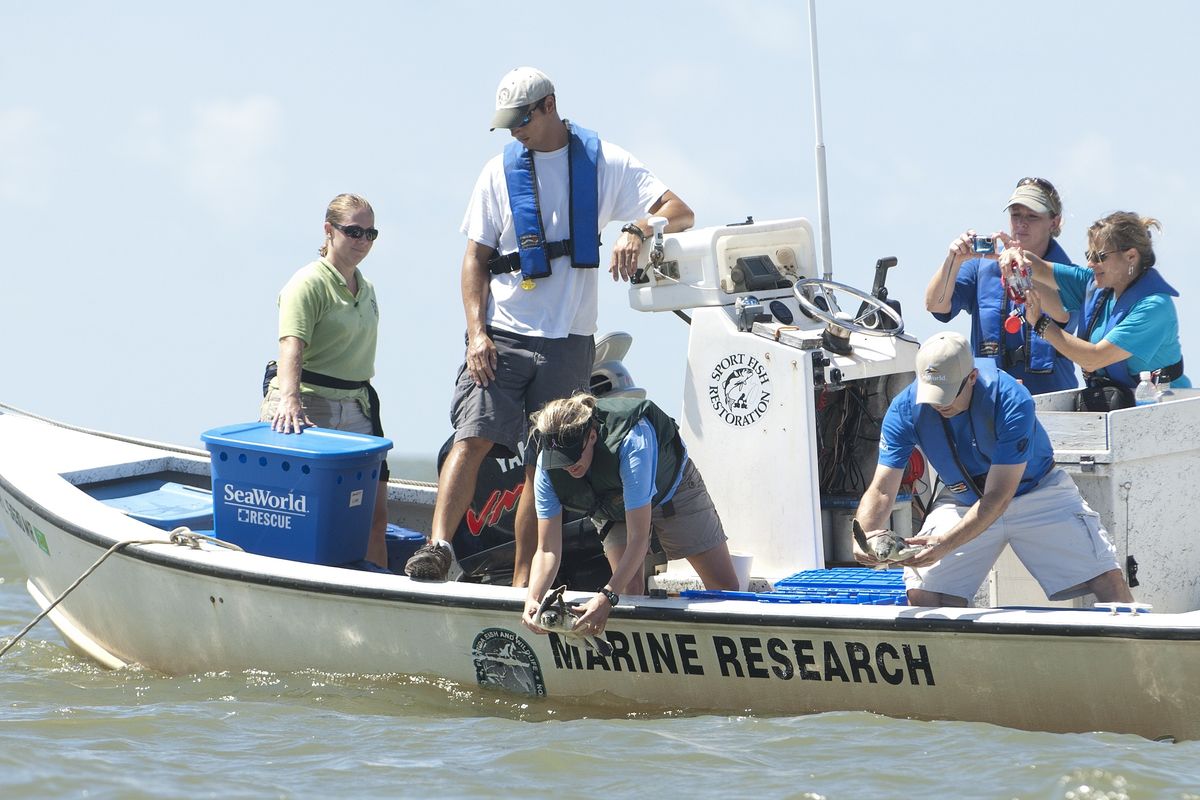First oiled sea turtles released after rehab

CEDAR KEY, Fla. – The first rehabilitated turtles oiled by BP’s massive leak were released back into the Gulf of Mexico on Wednesday, with scientists saying that animals taken in by rescuers – including birds – appear more resilient than first feared.
Retired Coast Guard Adm. Thad Allen, who is overseeing the oil crisis for the government, helped release the 22 oiled sea turtles about a mile off the coast of Cedar Key, Fla., an area unaffected by the spilled crude. They were the first oiled turtles found in the Gulf and rehabilitated.
Even though oil spill rescue crews have brought more sea turtles and birds to shore in the month since BP capped its broken well than the previous month, wildlife officials said both kinds of animals have suffered less damage than originally projected.
Rescuers have taken in 444 oiled turtles that were found alive since April 30, according to the National Oceanic and Atmospheric Administration. They found 522 turtles dead, though they’ve only confirmed that 17 of those had oil on them.
Virtually all the live turtles – all endangered, most of them the rare Kemp’s ridley species – have recovered quickly. Oiled turtles are scrubbed clean with dish soap and other cleaners, tested for health problems and fed at the centers. Once the turtles regain their strength, they are returned to the wild.
“We haven’t seen any of the problems that we thought we might see” with the turtles, said veterinarian Brian Stacy of the National Marine Fisheries Service.
Many young birds were spared because the worst of the oil came in at the start of the nesting season rather than when chicks were learning to fly.
In all, about 1,933 oiled birds have been rescued, while 1,942 oiled birds have been found dead since the well blew April 20. “It could have been a lot, lot worse,” said Mike Carloss, a Louisiana Department of Wildlife and Fisheries biologist.